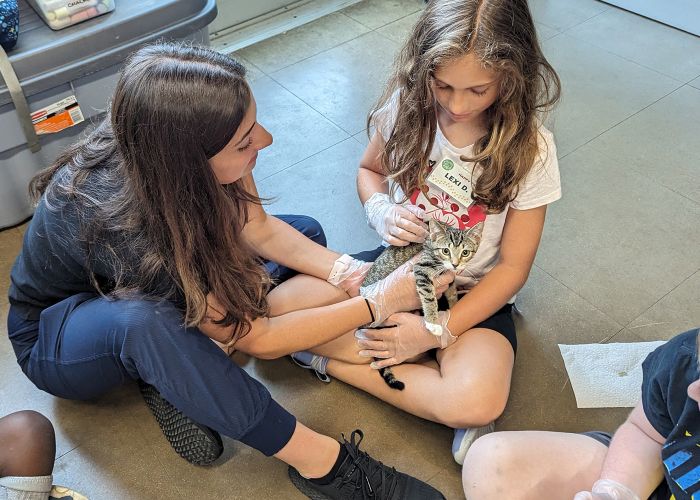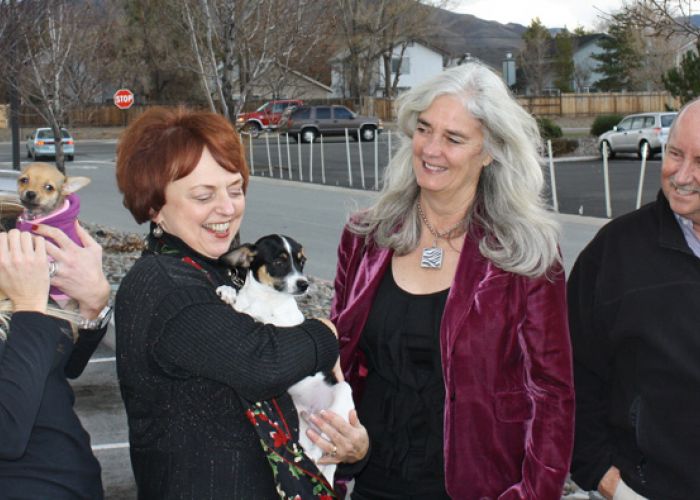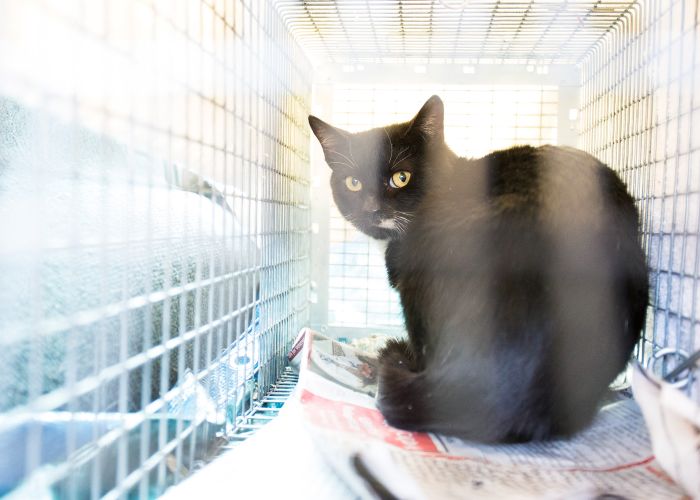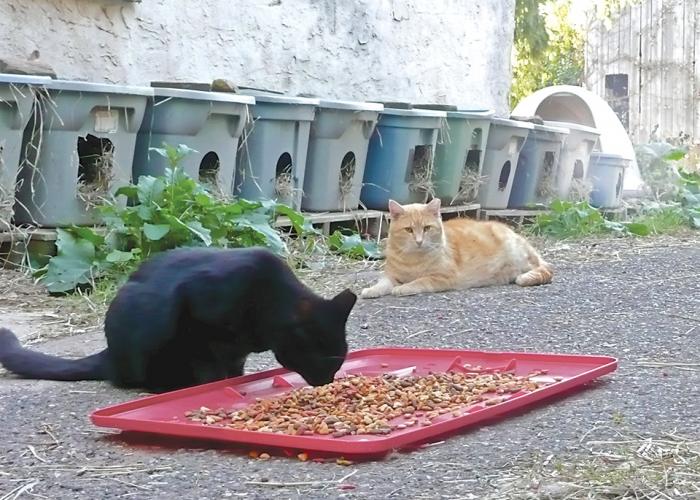Super trooper
Colorado K9 officer is busy busting stereotypes
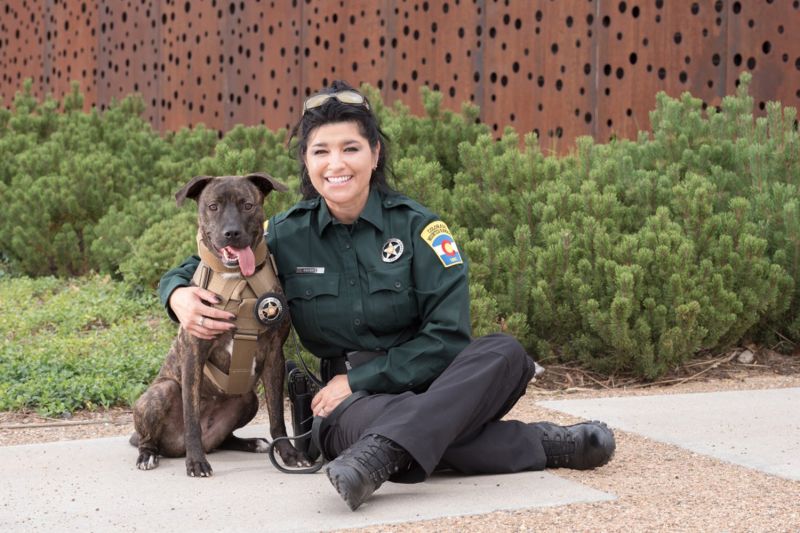
A shorthaired, medium-sized pit bull-mix, Kara looked like a lot of the other dogs at the Canyon Lake Animal Shelter Society in Texas. Her history wasn’t unusual either: She was surrendered with her eight puppies by an owner who couldn’t care for them. But inside this average-looking dog with a sad but run-of-the-mill backstory was a natural high achiever—someone with the smarts, drive and focus to get a job done.
It wasn’t long before shelter staff recognized Kara’s potential. And so when her pups grew older and embarked on regular dog lives in their adoptive homes, Kara went to nearby San Antonio, where she learned to sniff out heroin, cocaine, marijuana, methamphetamine and ecstasy at the nonprofit Universal K9 training center. In June, she graduated at the top of her class of 20 dogs. One month later, she was standing on a podium in Parker, Colorado, the star of the ceremony that made her an official member of the Colorado Mounted Rangers, a volunteer organization that provides assistance to law enforcement, first responder and search-and-rescue agencies throughout the state.
It’s the type of outcome Brad Croft envisioned when he founded Universal K9 a decade ago. “I can’t describe the feeling I get when I get [a shelter dog] placed, and they end up having a successful career and life,” he says. “No amount of money can replace that feeling.”
A longtime dog trainer, Croft has never seen the sense in breeding dogs for law enforcement roles when animal shelters are full of great candidates. “Any dog who has the drive and will to do this work can succeed,” he says. “The breed dictates absolutely zero.”
About 400 shelter and rescue dogs of various breeds and mixes enter Universal K9’s training program each year, where they learn to detect explosives, narcotics and weapons. They’re then placed with law enforcement agencies around the country. It’s a boon to police departments that can’t afford purpose-bred dogs (who often come from Europe and can cost $15,000 or more, Croft says), and it’s a second chance for dogs whose high energy can make them a bit daunting for potential adopters. And as each graduating class of canines embarks on new careers, they’re helping to change public perceptions of what a police dog “should” look like.
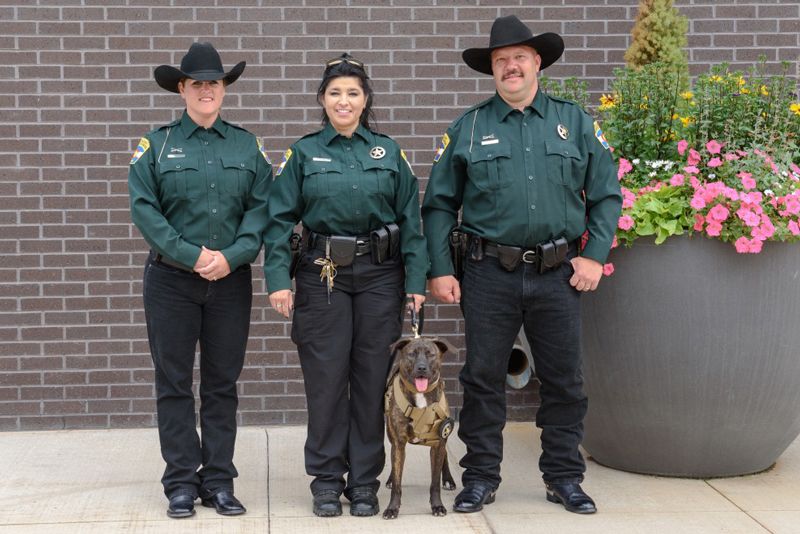
Dawn Havens, an 11-year law enforcement veteran and volunteer with the Colorado Mounted Rangers, had long dreamed of combining her love of dogs with her love for police work. But money was an obstacle. Although Universal K9 provides trained dogs to law enforcement agencies for free, the agencies must cover the costs for their officers to complete a two-week handler training course—and there wasn’t money in the Rangers’ budget for this.
Havens contacted Croft with the dilemma and learned about the Detection Dog Program, a partnership between Universal K9 and the Animal Farm Foundation (AFF), a nonprofit that rescues and advocates for equal treatment of pit-bull-type dogs. By sponsoring handler trainings, AFF has facilitated law enforcement careers for more than 30 pit bull-types over the past two years. In this way, Croft says, they’re tackling the breed stigma “from the inside.”
When AFF agreed to fund Havens’ training, she traveled to Texas to meet and train with Kara. “It all fell together so perfectly,” she says. “We had an instant bond. We have a lot of the same traits. She’s very high energy. I’m very high energy.”
While Denver and several other cities in Colorado have some of the most draconian pit bull bans on the books, Havens didn’t hesitate to choose Kara as her canine partner. Parker, the town 30 minutes south of Denver where Havens lives, doesn’t have a breed ban. Last year, she adopted her first pit bull-type dog, Sadie—“a big clown who loves everybody,” she says—from a shelter. In her mind, the fact that Kara would be helping to combat breed prejudice in her state was an added bonus.
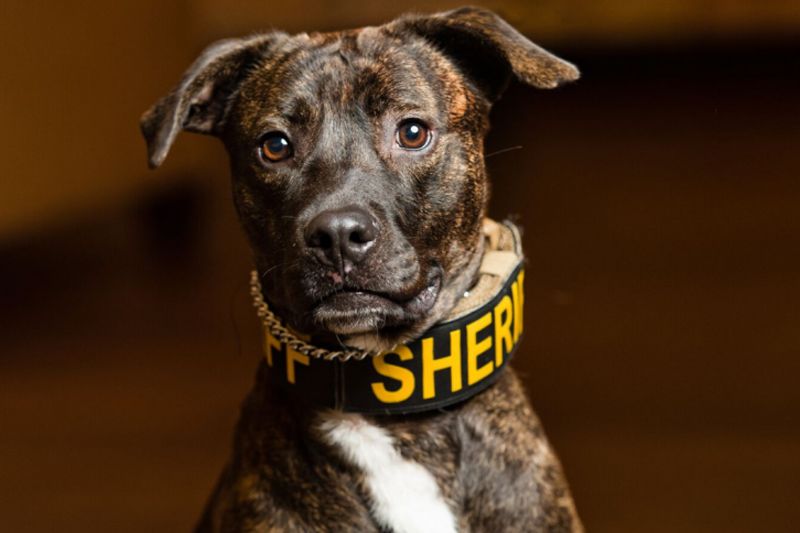
Back home, Kara and Sadie became instant best friends. “They play constantly,” Havens says. “It’s like two buffalos running everywhere.”
In her first case as an official Ranger, Kara located a syringe and a cellophane wrapper with drug residue during a home search. “She’s really, really good at her job,” says Havens.
Still, Havens admits that so far Kara has spent more time working the crowds than working on cases. As the Rangers’ first-ever K9 officer and the first pit bull-type law enforcement dog in the state, she’s attracted a lot of media attention, including a news video that shows her being lavished with attention by a group of young kids at a public park. “She’s had so much publicity, it’s been crazy,” Havens says.
Havens hopes to one day do K9 police work full time. She knows that Kara could put in a lot more hours than her own volunteer schedule currently allows. But in the meantime, she appreciates that Kara is a highly visible refutation of stereotypes about pit bull-types and shelter dogs in general.
“A lot of people think if a dog is in a shelter, something is wrong with them,” she says. “I’ve always owned shelter animals, and I’ve never been disappointed.”


